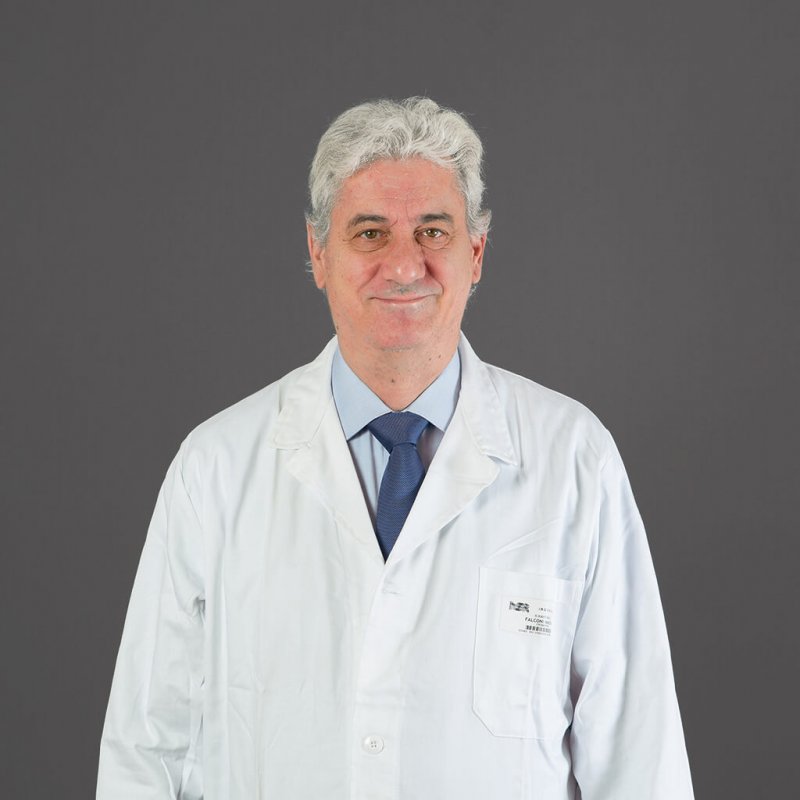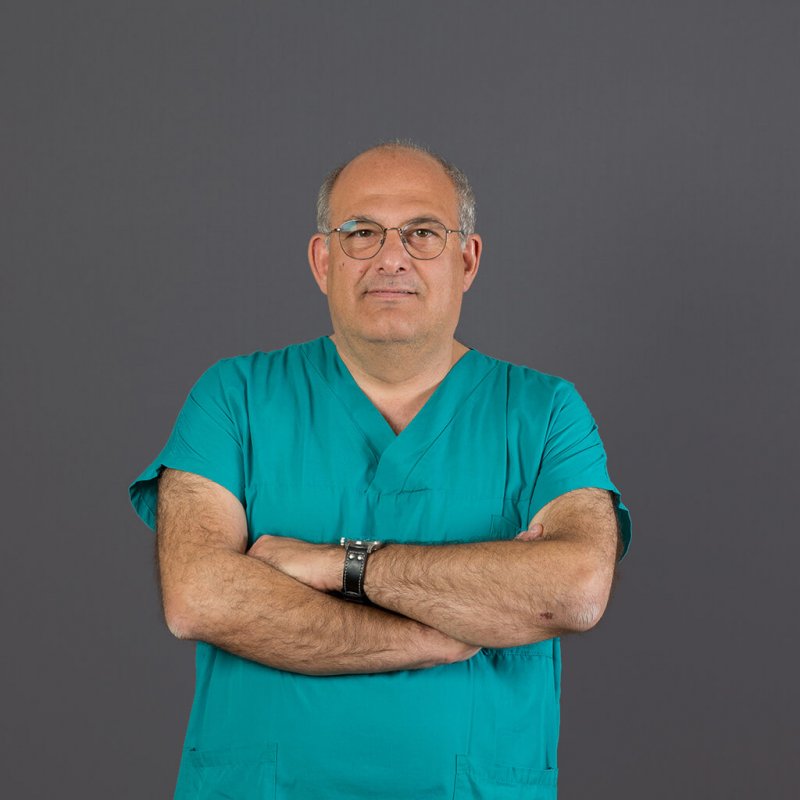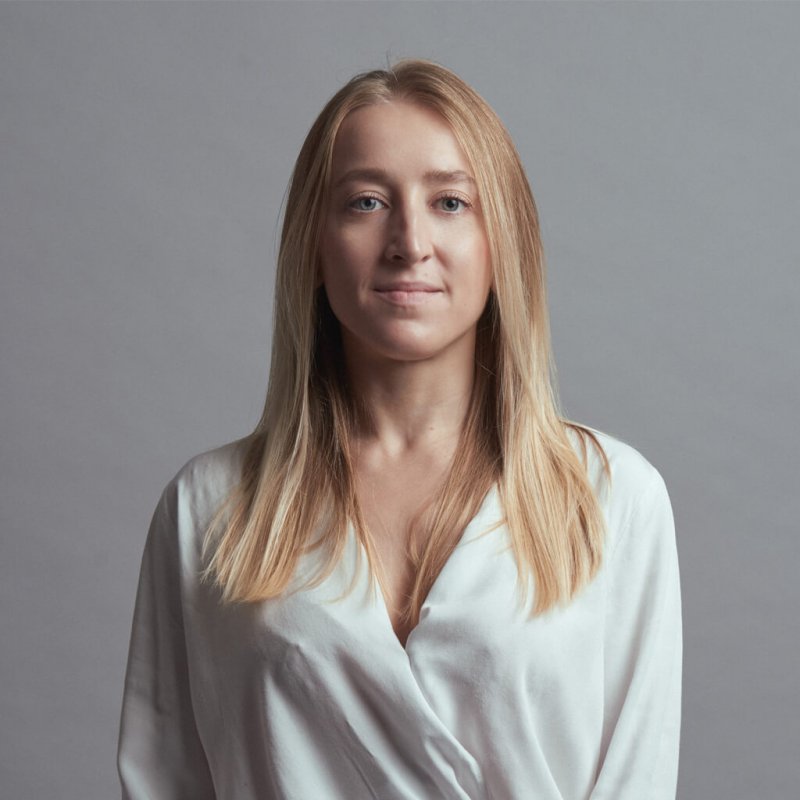Cassandra Study: results presented at the ASCO Congress in Chicago with a focus on the treatment of non-metastatic pancreatic cancer

Publication date: 16-06-2025
Updated on: 16-06-2025
Topic: Oncology
Estimated reading time: 1 min
Article Author
Marta Ammoni
Medical Editor
Michele Reni
Medical Editor
Massimo Falconi
Medical Editor
Fabio Ciceri
Editor and Translator
Viktoryia LuhakovaProfessor Michele Reni, Head of the Oncology and Oncology Day Hospital Units, Director of the Strategic Program for Clinical Coordination of the Pancreas Center at IRCCS Ospedale San Raffaele, and Associate Professor of Oncology at Vita-Salute San Raffaele University, is the creator and coordinator of the CASSANDRA study. He recently presented its results at the Annual Meeting of the American Society of Clinical Oncology (ASCO), the world’s leading oncology congress, held in Chicago.
The CASSANDRA study was designed to improve therapeutic outcomes in patients eligible for surgical resection of pancreatic ductal adenocarcinoma (PDAC). It compared the effectiveness of two chemotherapy regimens administered before surgery.
The results showed that patients treated with PAXG, a chemotherapy combination developed at San Raffaele in 2012 and approved by AIFA in January 2020 for metastatic or locally advanced pancreatic cancer, had longer event-free survivalcompared to those treated with modified FOLFIRINOX (mFOLFIRINOX), the current standard of care.
Pancreatic ductal adenocarcinoma (PDAC)
PDAC is the most common form of pancreatic cancer, accounting for 95% of all malignant pancreatic tumors. It represents approximately 3% of new cancer cases annually, ranks as the third leading cause of cancer-related death, and has the lowest five-year survival rate among solid tumors.
The disease originates in the exocrine cells of the pancreas responsible for producing digestive enzymes. These cells begin to grow uncontrollably and often spread rapidly to other organs. PDAC is frequently diagnosed at an advanced stage, and only 10–20% of patients are eligible for surgery.
However, more than 90% of patients with disease seemingly confined to the pancreas already harbor micrometastases, too small to be detected by current diagnostic tools. This supports the use of perioperative chemotherapy, which has been shown to improve both cure rates and overall survival compared to post-operative chemotherapy, which is often limited by the slow and difficult clinical recovery after major surgery.
CASSANDRA project: design and findings
“CASSANDRA study was born from the need to improve patient prognosis without compromising quality of life compared to the current standard of care,” explains Professor Michele Reni.
The study evaluated the superiority of PAXG over mFOLFIRINOX when administered for 4 or 6 months before surgery. Conducted across 17 Italian hospitals and coordinated by IRCCS Ospedale San Raffaele, the study enrolled 260 patients who were randomly assigned to receive either PAXG (132 patients) or mFOLFIRINOX (128 patients).
The results showed that event-free survival (defined as absence of progression, recurrence, inoperability, rising tumor markers, metastases found during surgery, or death) was significantly longer in the PAXG group than in the mFOLFIRINOX group.
“This represents a historic step forward in the fight against pancreatic cancer,” says Professor Reni. “The magnitude of the difference observed between the two treatments challenges the current paradigm, where mFOLFIRINOX has long been considered the most effective regimen.”
Patients treated with PAXG also showed a higher rate of pathological responses (i.e., less residual tumor tissue observed by pathologists after surgery), improved biochemical responses, and a lower likelihood of disease progressionduring chemotherapy.
“These findings reinforce the importance of independent clinical research and show how innovative therapeutic strategies can concretely improve patient outcomes,” adds Professor Massimo Falconi, Head of the Pancreatic Surgery Unit and Director of the Pancreas Translational & Clinical Research Center at IRCCS Ospedale San Raffaele, Full Professor of Surgery at Vita-Salute San Raffaele University, and co-Principal Investigator of the study.
Crucial role of patient associations
One of the most remarkable aspects of the CASSANDRA study is that it was entirely funded by five patient advocacy organizations: My Everest, Codice Viola, Associazione per la Vita, Natalucci, and Oltre la Ricerca. This demonstrates the critical role that patients and civil society can play in driving scientific progress.
“This study would not have been possible without their support. It proves that collaboration between the scientific community and the public can lead to concrete achievements in the fight against cancer. We are deeply grateful to these associations for believing in our vision and enabling this work. Their trust and commitment were fundamental in making progress against a disease that still demands many answers. This study shows that community-backed, independent research can truly make a difference,” emphasizes Professor Reni.
Future prospects and the role of the pancreas center and comprehensive Cancer Center
ASCO’s interest in the CASSANDRA study marks global recognition of the value of Italian oncology research and the potential international impact of this new therapeutic strategy. The findings open new horizons in pancreatic cancer treatment, paving the way for updates to international clinical guidelines and the initiation of further clinical trials.
In this context, the Pancreas Center at IRCCS Ospedale San Raffaele, responsible for enrolling approximately 50% of the study’s patients, reaffirms its status as a national and international referral center for the diagnosis and treatment of pancreatic diseases. The center adopts a fully integrated care model, involving specialists in oncology, surgery, radiology, gastroenterology, radiotherapy, pathology, nuclear medicine, clinical nutrition, psychology, diabetology, and translational research.
The Pancreas Center works in close synergy with the San Raffaele Comprehensive Cancer Center, directed by Professor Fabio Ciceri, Head of the Hematology and Bone Marrow Transplant Unit at IRCCS Ospedale San Raffaele and Professor of Hematology at Vita-Salute San Raffaele University. This collaboration leverages multidisciplinary expertise and shared resources to develop increasingly personalized and effective treatment strategies that improve both survival and quality of life.
“Our primary goal is patient well-being. San Raffaele's Comprehensive Cancer Center was created to optimize care pathways for oncology patients by promoting collaboration across all our clinical and research excellence hubs, including the Pancreas Center. By integrating clinical care with translational research, we offer innovative, experimental, and personalized treatments to support patients at every step of their journey,” says Professor Ciceri.
The research continues. New results from the CASSANDRA study are expected soon and may help further refine treatment strategies.
“Our work as a center of excellence for pancreatic cancer treatment is not finished. We are soon expecting data on the optimal duration of preoperative chemotherapy, specifically, whether patients benefit more from receiving the full 6 months of chemotherapy before surgery, or 4 months before and 2 months after the operation,” conclude Professors Michele Reni and Massimo Falconi.